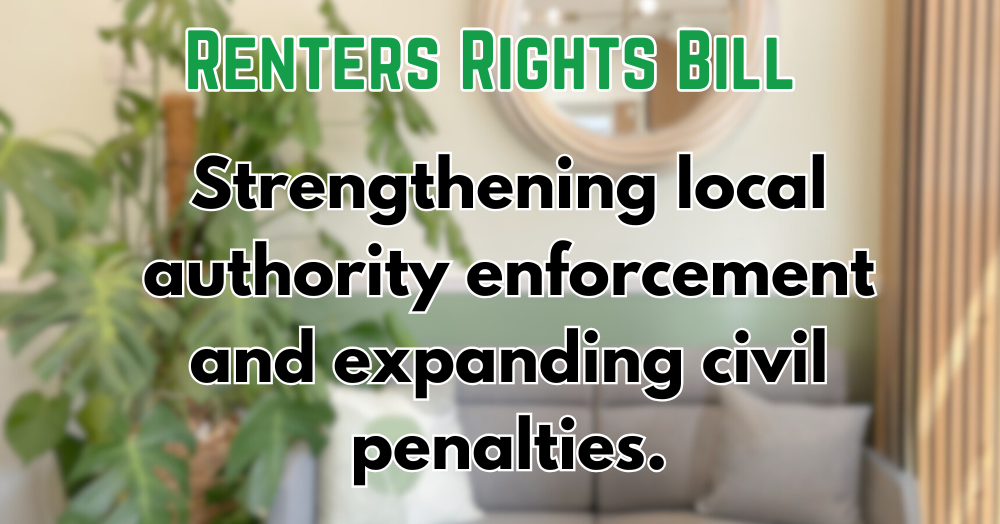
The Renters Rights Bill - Strengthening of local authority enforcement powers and expanding civil
New powers will be provided to local authorities to issue penalties to landlords who fail to meet the requirements of the Renters Rights Bill. What’s changing in enforcement and investigatory powers.
The bill will extend the councils’ powers to collect and retain revenue for future enforcement work from financial penalties against landlords who flout the rules.
Initial or minor non-compliance will incur a civil penalty of up to £7,000 and serious, persistent or repeat non-compliance a civil penalty of up to £40,000, with the alternative of a criminal prosecution.
Councils will get a range of new investigatory powers which will allow them to enforce new reforms, including powers to require information from relevant persons and any persons and powers of entry to business and residential premises.
What’s changing on enforcement?
- Extension of civil penalties and rent repayment orders, placing a new duty on councils to take enforcement action and enhancing their powers of investigation to make that easier.
- Local councils will be able to issue civil penalties against landlords who fail to comply with our reforms – for example if they fail to register on the Private Rented Sector Database or with the ombudsman or abuse the new grounds of possession.
- First or minor non-compliance will incur a civil penalty of up to £7,000 and serious or repeat non-compliance a civil penalty of up to £40,000.
- For serious and repeat non-compliance, local councils will alternatively be able to pursue a criminal prosecution with an unlimited fine.
- For the first time, local councils will also be able to issue civil penalties against landlords who evict their tenants illegally.
- The bill will extend rent repayment orders to superior landlords and to some of the new offences in the bill, increasing the maximum penalty to 2 years’ rent and requiring repeat offenders to repay the maximum amount of rent.
- The bill will introduce enhanced investigatory powers that will make it easier for local councils to obtain financial information from landlords and third parties when seeking to build a case against landlords for suspected abuses.
What are the new investigatory powers?
- The Renters’ Rights Bill introduces new investigatory powers to help to support local authorities and tackle unscrupulous landlords. These powers are modelled on existing powers available for local trading standards, for example to support the enforcement of letting and estate agent legislation.
- The bill provides a power to require information from third parties such as banks, accountants and client money protection schemes, as an additional route to get vital evidence to build cases.
- The bill also includes the power to enter business premises and – in more limited circumstances – residential premises to obtain on-site evidence. Often essential evidence, such as email exchanges, text messages, bank statements and tenancy agreements, are held on business premises.
- These powers will be available for breaches relating to the new Bill and wider housing legislation.